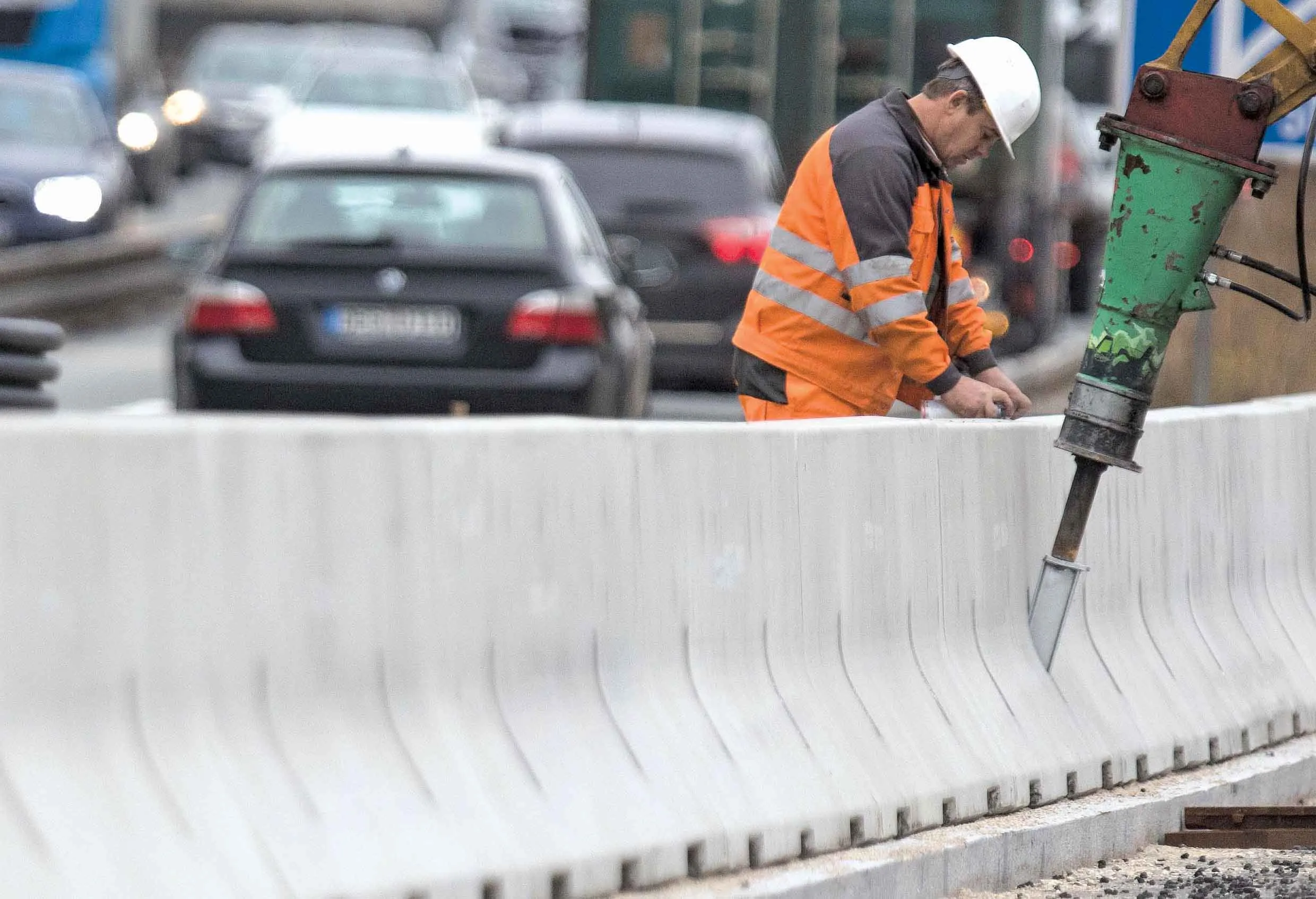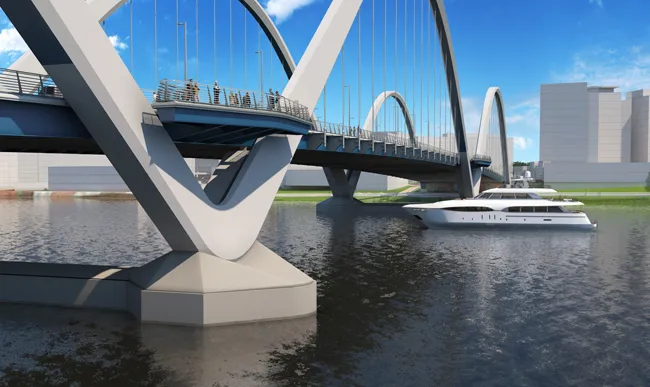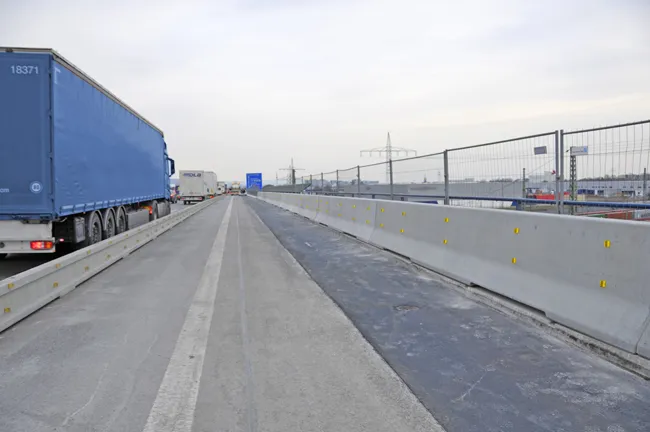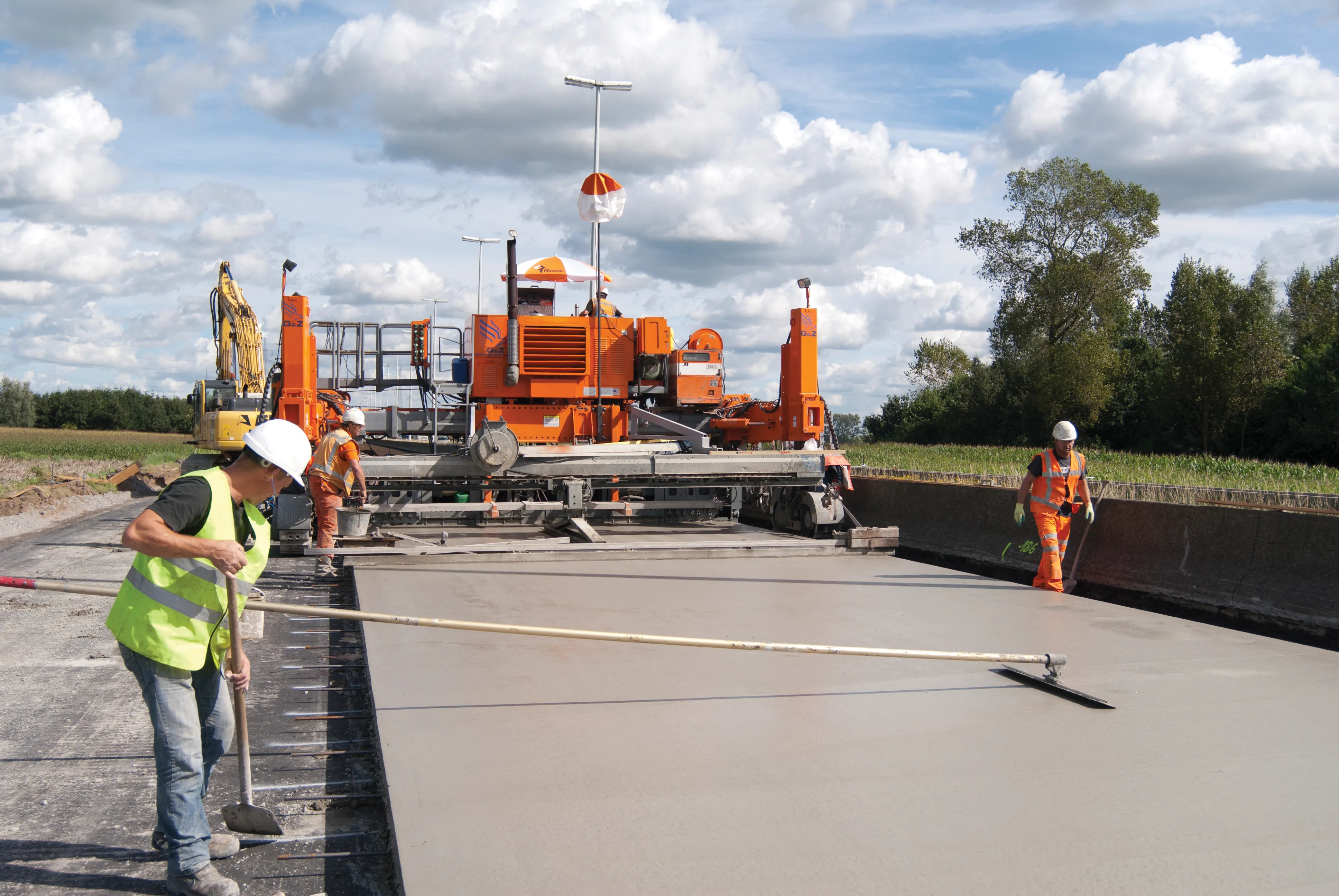The DB 80, from Austrian manufacturer Delta Bloc, is a vehicle restraint system with a “New Jersey” profile. In conjunction with the continuous tension bar, it prevents the breakthrough of cars, according to the Delta Bloc.
A Jersey barrier or Jersey wall is a modular concrete or plastic barrier used to separate lanes of traffic. It is designed to minimise vehicle damage in cases of incidental contact while still preventing the crossover case of a head-on collision. Plastic water barriers of the same gen
July 5, 2016
Read time: 2 mins

The DB 80, from Austrian manufacturer 4017 Delta Bloc, is a vehicle restraint system with a “New Jersey” profile. In conjunction with the continuous tension bar, it prevents the breakthrough of cars, according to the Delta Bloc.
A Jersey barrier or Jersey wall is a modular concrete or plastic barrier used to separate lanes of traffic. It is designed to minimise vehicle damage in cases of incidental contact while still preventing the crossover case of a head-on collision. Plastic water barriers of the same general shape are also now commonly referred to as Jersey barriers.
Delta Bloc says that the DB 80 is the first precast concrete safety barrier tested for a single-row application in the median. It is surface-mounted on compacted gravel, with no excavation needed.
The DB 80 can also be used as a temporary construction-site barrier or even as a permanent double-rowed safety barrier in the central reservation on motorways.
As a temporary, moveable safety barrier, DB 80F provides containment level T3 with a minimum working width of W2.
Delta Bloc, based in Sollenau, Austria, offers several systems featuring its DB “2-in-1” safety barriers for efficient road construction.
Jersey barriers are also used to reroute traffic and protect pedestrians during highway construction, as well as temporary and semi-permanent protections against land-borne attack such as suicide vehicle bombs. A Jersey barrier is also known in the western United States as K-rail, a term borrowed from the2451 California Department of Transportation specification for temporary concrete traffic barriers, or colloquially as a Jersey bump.
A Jersey barrier or Jersey wall is a modular concrete or plastic barrier used to separate lanes of traffic. It is designed to minimise vehicle damage in cases of incidental contact while still preventing the crossover case of a head-on collision. Plastic water barriers of the same general shape are also now commonly referred to as Jersey barriers.
Delta Bloc says that the DB 80 is the first precast concrete safety barrier tested for a single-row application in the median. It is surface-mounted on compacted gravel, with no excavation needed.
The DB 80 can also be used as a temporary construction-site barrier or even as a permanent double-rowed safety barrier in the central reservation on motorways.
As a temporary, moveable safety barrier, DB 80F provides containment level T3 with a minimum working width of W2.
Delta Bloc, based in Sollenau, Austria, offers several systems featuring its DB “2-in-1” safety barriers for efficient road construction.
Jersey barriers are also used to reroute traffic and protect pedestrians during highway construction, as well as temporary and semi-permanent protections against land-borne attack such as suicide vehicle bombs. A Jersey barrier is also known in the western United States as K-rail, a term borrowed from the









